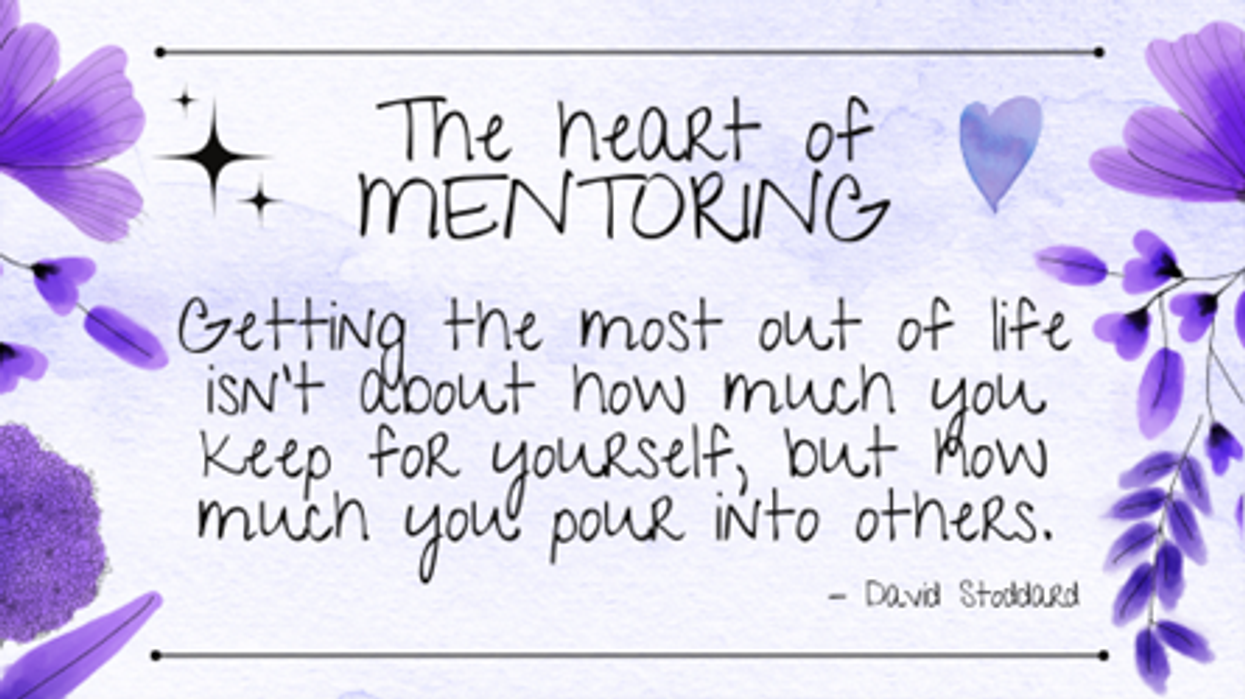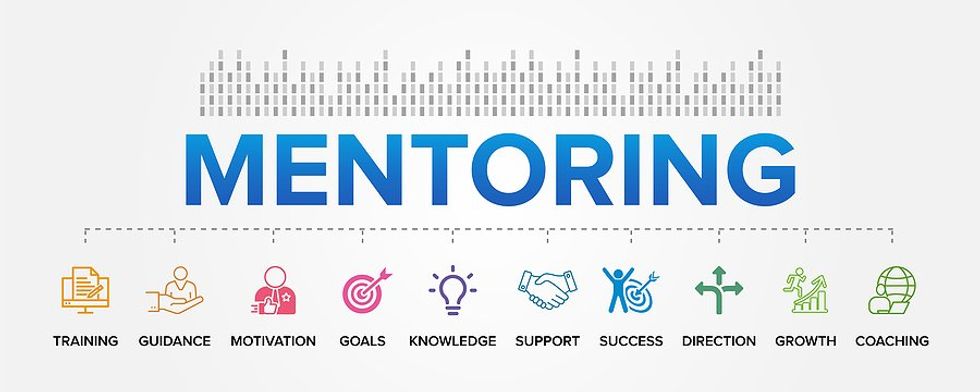
When people think of mentoring, several will think of a more experienced person who provides guidance and shares knowledge with someone who may be starting their career. Mentoring can encompass professional development and career guidance but can be much broader including personal development and growth.
People have mentored me for as long as I can remember. We may not have used the word “mentor” but when I look back, I know that I was clearly mentored. These are people that I highly respect and are in a special category that reminds me of the old TV commercial “When E.F. Hutton talks, people listen.” One of those individuals is Michael. I was an accounting major during college, and he casually suggested that I take some programming classes. Those IT classes weren’t part of my coursework, but I did and knew that’s what I was meant to do immediately switching my major from accounting to IT.
After graduation, I got my first IT job and Kathy was my supervisor and took me under her wing. Other individuals continued to mentor me throughout my career. Being a minority woman in the IT field in Alaska, there weren’t many people who looked like me. Luckily, I’ve always had mentors like James who guided me as I continued to transition into different leadership roles including in different industries.
I was recruited and relocated from Alaska to Charlotte for a role but had to start over when the pandemic hit. I hardly knew any people or companies in Charlotte and started rebuilding my network one person at a time. I found some individuals who truly touched my heart like Elizabeth. Different individuals offered their insights, shared experiences, and helped me get acclimated to Charlotte. I’m so thankful for those individuals investing in me.
Good vs. Great Mentor

Image from Bigstock
For me, what makes individuals great mentors and not simply good mentors? Not only do they share practical advice, relevant knowledge, and lessons learned, but they are approachable, and I am comfortable sharing my aspirations, challenges, and concerns. These mentors are my Personal Board of Directors (PBOD) and my circle of trust. They actively listen, are empathetic, and trust them to provide constructive feedback. Feedback is a gift, and I trust they will tell me the truth (the good, the bad, and the ugly). This is important because being open about my areas for improvement can provide more perspective than sharing my strengths and successes. Will I ever not need my mentors? No! My journey will continue to meander with new goals. For example, in the future, I’m planning for corporate board service and will seek out my mentors’ insights and guidance.
Paying It Forward

Image from Bigstock
Somewhere along the way, I became a mentor myself. Now I have the opportunity to give back and pay it forward, making a positive impact on someone else’s life. I’ve had progressive roles and share my knowledge, skills, and experiences to help someone else grow, develop, and potentially reach their potential. Mentoring provides an opportunity to leave a lasting effect. It’s a mutually beneficial two-way relationship because both sides learn fresh perspectives, grow, and benefit from the relationship. Each time I invest in the next generation, it’s a ripple effect of positive change.
What’s the best mentorship moment? For me, it’s when I see the person I mentored mentoring others! It’s a full-circle moment showing how the ripple effect caused by a single action spread.
If you take the time to invest and become a mentor, think about the positive impact you could have on someone’s life. For more information on the mentor’s journey from seeking guidance to paying it forward, follow me on LinkedIn!
- Executive Spotlight: How To Develop Top Talent At Your Organization ›
- 8 Education Industry Leaders Speak Out: How To Address Teacher Shortages ›
- Should Executives Take On The Role Of Mentor? ›

 Bigstock
Bigstock Bigstock
Bigstock Bigstock
Bigstock


